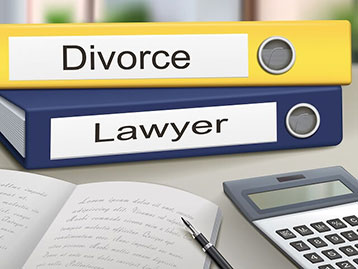New Jersey is an equitable distribution state. Unlike community property states (where, in many cases, “marital property” is split equally in a divorce), in equitable distribution states, marital property is split according to what a judge deems “fair” under the circumstances. Fair does not necessarily mean equal, and determining your property rights in a divorce requires the advice and representation of an experienced divorce lawyer.
Marital vs. Non-Marital Property
The first thing to understand when it comes to equitable distribution in New Jersey is the distinction between marital and separate (or “non-marital”) property. In general terms, marital property consists of any assets acquired during the marriage – either by both spouses or by either spouse using income earned during the marriage. Everything else is non-marital property. This includes assets acquired prior to the marriage, spouses’ individual inheritances and gifts, and income from assets owned before vows were exchanged.
This is the general rule. There are important exceptions, and it is critical for you to understand these exceptions and how they apply to your personal situation. Particularly, if you owned a home, business, or investments before you got married, you will want to work with a knowledgeable divorce attorney to make sure that you retain all of the ownership rights to which you are legally entitled, should this be your objective. On the other hand, there are cases where a future marital home may have been purchased in anticipation of marriage, yet titled under only one future spouse’s name. The home may very well be eligible for equitable distribution, title notwithstanding.
Your Date of Complaint Matters
Remember how we said that property acquired by either spouse during the marriage constitutes marital property, and how this was the general rule? If you and your spouse separate before getting divorced, this is an area where a key exception applies. In New Jersey, your date of separation (not necessarily your date of divorce) serves as the cut-off date for classifying newly-acquired assets as marital property.
The date of the filing of the Complaint is critical in a divorce case. It can have a dramatic effect on financial aspects ranging from pension benefits to marital assets and more. In some cases, the date of physical separation may take on added importance. However, such cases are the exception to the generalized rule. The date of separation and date of Complaint are distinct concepts, and must not be confused.
What is the Date of Complaint?
While each case will vary, in New Jersey, the date of Complaint, sometimes referred to as the cut-off date for the equitable distribution of “active assets,” is the date the actual divorce complaint is filed. Even if a couple is separated for two years prior to filing for divorce, the date would presumptively coincide with the filing of the divorce complaint. However, the courts do have discretion and can deviate from this rule based on the circumstances of the case.
Why Does the Date of Complaint Matter?
In a divorce case in New Jersey, the date of complaint determines the actual cutoff date for the equitable distribution of “active assets,” meaning that assets that increase in value due to the continued efforts of a party are generally ineligible for equitable distribution beyond the date of complaint. Examples of active assets would include continued contributions to retirement accounts and bonuses awarded for prospective performance. Other assets – so-called passive assets – are not affected by the date of complaint. Examples include interest accruing on savings and asset growth based on market forces alone. If a couple separated weeks, months or even years before and assets grew in value during the separation, this could lead to a spouse still benefiting from financial growth of those assets – regardless if they were actively participating in the marriage or not.
Equitable Does Not Mean Equal
As we mentioned, equitable distribution does not always equate to equal distribution under New Jersey law. In determining what is “equitable,” the New Jersey courts consider a laundry list of factors. This includes things like:
- The duration of the marriage
- Each spouse’s financial contributions to the marriage
- The spouses’ relative earning capacities
- The spouses’ relative economic circumstances at the time of divorce
- The tax consequences of a potential distribution
- Any outstanding debts or liabilities
If you and your spouse are resolving your divorce out of court, you have a certain amount of flexibility, though the statutory factors will remain relevant as well. Unless it is part of a negotiated settlement, you do not want to give up any property rights that you could have obtained (or retained) if you had taken your case to court, unless of course that is your informed intention.
Contact Romanowski Law Offices about Your NJ Divorce
When going through a divorce in New Jersey, you need the representation of a skilled and experienced divorce lawyer who can help you competently address all of the property-related matters and other complex issues involved in ending your marriage. At Romanowski Law Offices, firm founder, Curtis J. Romanowski is a trusted authority on New Jersey divorce law, and we have successfully represented clients in numerous high-value divorces throughout the state. If you want experience on your side, contact us today for a Initial consultation.

